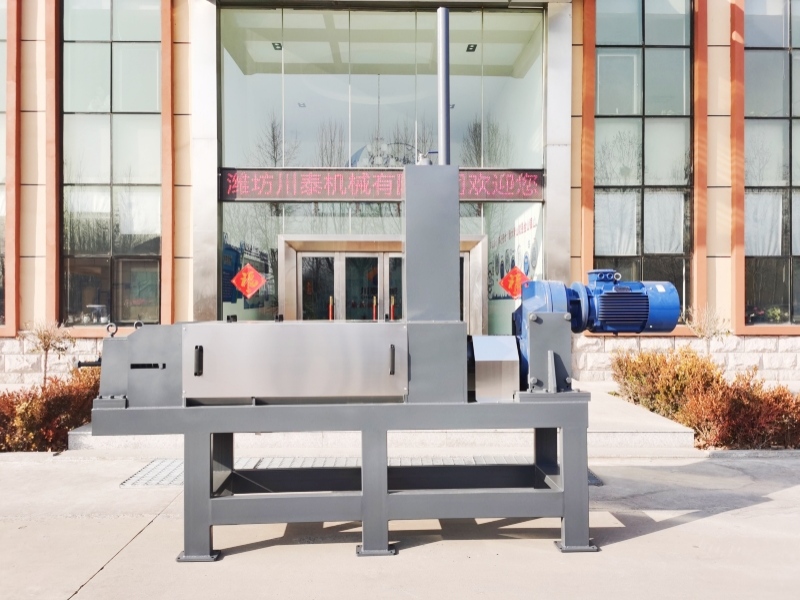
In recent years, advancements in agricultural technology have led to innovative solutions for waste management and resource utilization. One such development is the cow dung pressing and dehydrating machine, which plays a pivotal role in transforming organic waste into a valuable resource. This article explores the importance of cow dung pressing and dehydrating machines in modern agriculture and waste management practices.
Waste Management:
Cow dung, a byproduct of livestock farming, poses environmental challenges when not properly managed. It contains a significant amount of organic matter, nutrients, and water. If left untreated, cow dung can lead to water and soil pollution, emitting harmful greenhouse gases like methane. Cow dung pressing and dehydrating machines provide an effective solution to manage this waste by reducing its volume and mitigating its negative environmental impacts.
Resource Utilization:
One of the key benefits of cow dung pressing and dehydrating machines is their ability to transform cow dung from waste into a valuable resource. Once processed, the resulting dry cow dung can be utilized as a nutrient-rich organic fertilizer. Its high nitrogen, phosphorus, and potassium content make it an ideal soil amendment, enhancing soil fertility, structure, and water retention. This resource utilization not only reduces the need for chemical fertilizers but also closes the nutrient loop in agricultural systems.
Biogas Production:
Cow dung is an excellent feedstock for biogas production due to its high organic content. However, the moisture content in raw cow dung can hinder efficient biogas generation. Cow dung pressing and dehydrating machines play a vital role in removing excess water from cow dung, optimizing its use in biogas digesters. Biogas, primarily composed of methane, can serve as a clean and renewable energy source for cooking, heating, and electricity generation.
Improved Hygiene:
In rural areas where cattle farming is common, cow dung can accumulate and create unhygienic conditions. Cow dung pressing and dehydrating machines aid in maintaining cleaner and healthier environments by reducing the volume of cow dung and minimizing odor. This contributes to better living conditions for both humans and animals.
Economic Benefits:
The adoption of cow dung pressing and dehydrating machines can lead to economic advantages for farmers and communities. By converting cow dung into valuable resources such as organic fertilizer and biogas, farmers can reduce input costs, increase crop yields, and potentially generate additional income through biogas sales.
Conclusion:
Cow dung pressing and dehydrating machines have emerged as indispensable tools in modern agriculture and waste management practices. Their role in transforming cow dung from a waste product into valuable resources, including organic fertilizer and biogas, cannot be overstated. As sustainable practices continue to gain prominence, these machines offer a sustainable solution that addresses waste management, resource scarcity, and environmental concerns, ultimately contributing to a more efficient and eco-friendly agricultural landscape.




If your company wants to establish a business relationship with us, please briefly describe the cooperation intention and send an email to:chuantaiscrewpress@gmail.com























































































![[list:title]](/static/upload/image/20240528/1716877114510915.jpg)